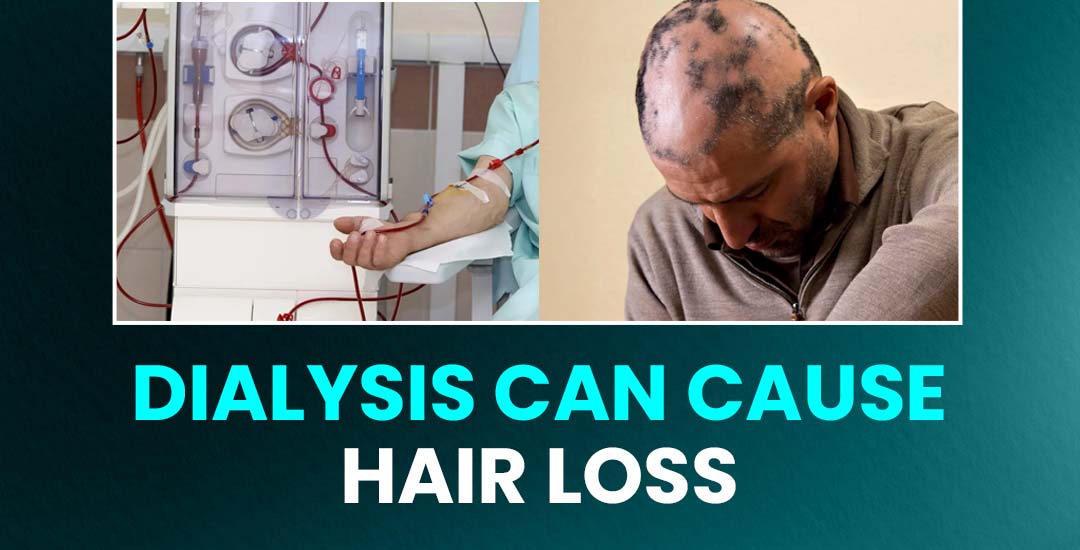
Dialysis and Hair Loss: Why Your Hair Might Be Throwing a Tantrum
Hair is kind of a big deal. It’s our crowning glory, our selfies’ best friend, and let’s admit it, sometimes it even doubles as a stress barometer. So, when someone on dialysis starts noticing more strands in the shower drain than usual, panic sets in. “Can dialysis cause hair loss?” you might wonder. Take a deep breath, grab a cup of coffee, and let’s unpack the connection between dialysis and hair loss.
What Dialysis Does to Your Body
First things first, dialysis is basically your kidneys’ understudy. When your kidneys aren’t doing their job, filtering out waste and excess fluid, dialysis steps in to save the day. But here’s the catch: while it keeps your blood clean and your body functioning, it’s not exactly gentle on every system in your body. Hair, unfortunately, is one of the first things to notice.
Dialysis itself doesn’t directly pull out your hair. That’s a myth. But your body undergoes a lot of changes: nutritional deficiencies, stress, and shifts in hormones, which can lead to hair shedding. Imagine your hair as a diva who notices when the catering at the party isn’t up to par; if your body isn’t giving it the nutrients it wants, it throws a tantrum.
Hair Loss: What’s Really Happening
Most people on dialysis experience a type of hair loss called telogen effluvium. Sounds fancy, right? Don’t worry; it’s basically a hair follicle protest. Your follicles normally cycle through growth, rest, and shedding. Stress, illness, or nutritional gaps can push a bunch of follicles into “resting” mode at once. The result? Hair falls out more than usual.
In the case of dialysis, there are a few culprits:
- Nutritional deficiencies – Dialysis can remove vitamins and minerals that your hair enjoys - Iron, zinc, and B-complex vitamins - and, without them, hair "goes on strike."
- Hormonal changes – Dialysis affects hormones such as thyroid and testosterone; your hair follicles may be confused, and they may initiate a leave of absence.
- Medications – Some medications prescribed to treat kidney disease or other related conditions can cause hair loss.
- Stress – Let’s face it, dialysis is stressful. Stress hormones can push your follicles into shedding mode.
Spotting the Signs
Hair loss on dialysis usually starts gradually. You might notice:
- More hair in your brush or comb.
- Strands in the shower drain that make you gasp.
- Thinning around the crown or temples.
The key is not to panic. This hair fall is temporary. Once your body adjusts and nutrient levels stabilize, hair can grow back.
How to Stop Hair Loss from Dialysis?
Now that we have checked out the relationship between dialysis and hair loss, let's discuss ways through which you can keep your hair happy:
- Nutrition is your hair’s BFF
Think protein, iron, zinc, and B vitamins. Your diet may be restricted on dialysis, but work with a dietitian to make sure your hair gets some love. Nuts, eggs, leafy greens, and lean meats (or plant-based alternatives) can help. - Gentle hair care
Avoid harsh chemicals, tight hairstyles, and heat styling. - Supplements, but with caution
Some supplements can support hair growth, but check with your nephrologist first. Dialysis changes how your body handles nutrients, and you don’t want to accidentally overdo it. - Stress management
Yoga, meditation, taking walks, or binge-watching a beloved series can all help lower your stress levels. Your hair follicles are surprisingly sensitive to cortisol (the hormone released in response to stress), so a calm mind equals calmer hair. - Ask your doctor
If the hair loss is sudden or severe, it might be reasonable to talk to your nephrologist. While hair loss kidney failure connection is strong, your hair loss could be associated with your other medications, thyroid issues, or any other treatable issues.
The Silver Lining
Here’s the good news: hair loss due to dialysis is usually temporary. Once your body adjusts, many people see hair regrowth within a few months. Plus, thinning hair sometimes encourages us to experiment. Hats, scarves, funky hairstyles; suddenly your wardrobe gets a little more exciting!
When to Seek Extra Help
While some shedding is normal, you should see a doctor if:
• Hair loss that is sudden or in clumps
• You experience other symptoms like exhaustion, skin changes, or brittle nails
• You’ve seen no hair regrowth after months
In Closing: Love Your Hair (and Yourself)
Dialysis might alter your physical appearance and sensations, but it doesn’t define who you are. Hair is important, sure, but it’s just one small part of your fabulous self. Some days you’ll have a great hair day, and some days your follicles might be throwing tantrums. The trick is to laugh, care for your body, and remember that hair can, and often does, grow back.
So, while dialysis and hair loss might make mornings a bit more “interesting,” you’ve got this. Treat your hair gently, nourish your body, and embrace the little quirks along the way. After all, life’s too short to stress over every strand; unless, of course, you’re aiming for a shampoo commercial.
FAQ
Can kidney disease cause hair loss?
Yes, kidney disease can cause hair loss due to hormonal imbalances, poor nutrition, and toxin buildup in the body.
Can kidney failure make your hair fall out?
Yes, in kidney failure, waste buildup and nutrient deficiencies lead to weaker hair roots and hair fall.
Can hair loss from kidney problems be reversed?
In many cases, yes, once kidney function improves and your nutrition is restored, your hair may regrow.
